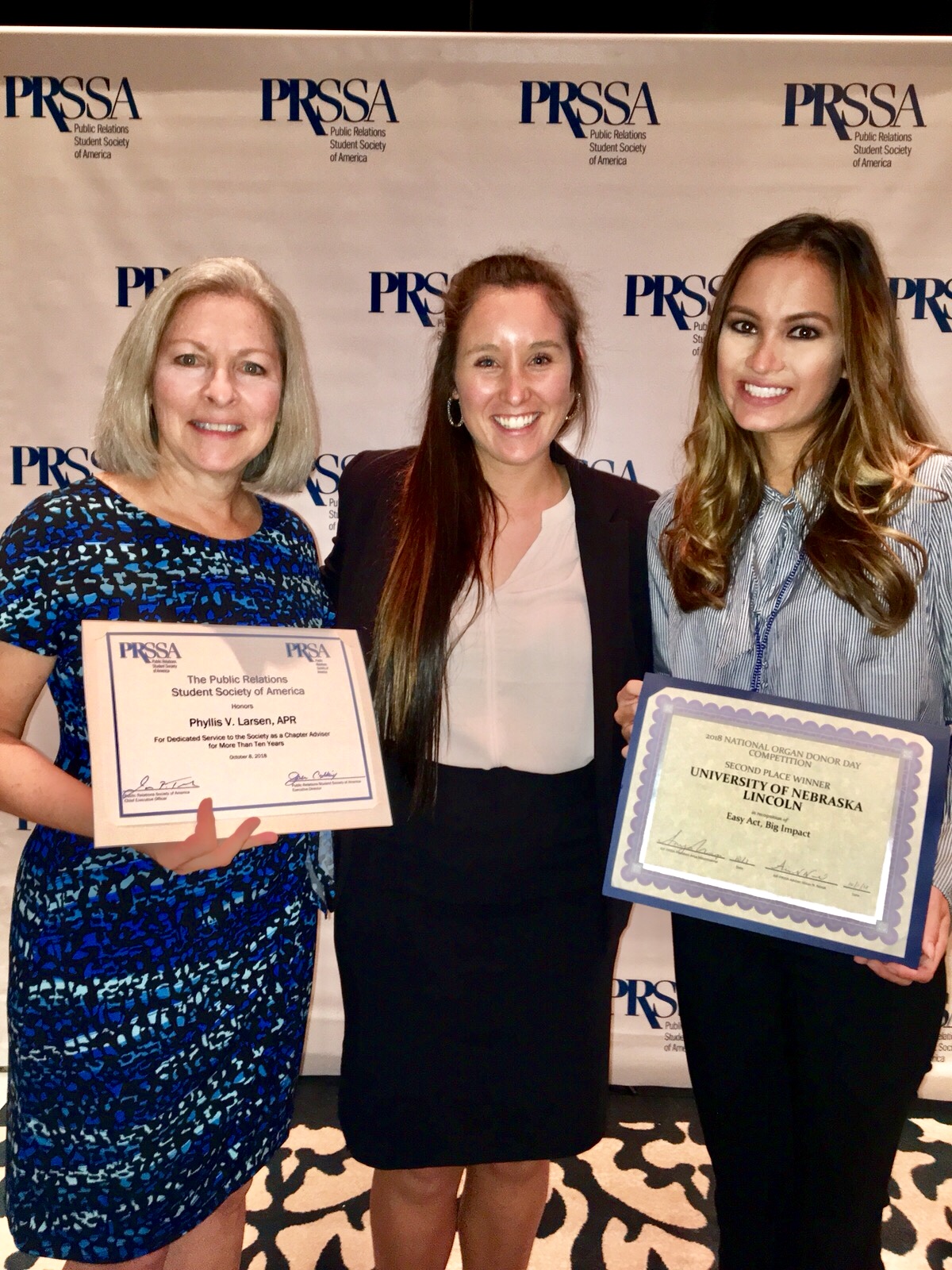
by Prof. Phyllis V. Larsen
“Who you know opens the door,” said David Brown. “What you know, keeps it open.”
Brown, a visiting professor at Temple University, was the first African American to receive the Public Relations Society of America’s David Ferguson Award for Outstanding Contributions to Education. He spoke to approximately 500 students at the 2018 Public Relations Student Society of America National Conference in Austin, Texas this week.
Paige Stanard and Christina Neary, both CoJMC ADPR seniors and PRSSA officers, heard lots of good advice from a wide variety of speakers at the conference. Stanard and Neary were chosen by their peers to represent UNL PRSSA and the National Organ Donor Awareness Competition team at the conference.
“I am so honored that I had the chance to represent the NODAC team in Austin this year,” Neary said. “It was an amazing experience to see my team's campaign recognized at the national level, have the opportunity to network with employers and hear from some very inspirational speakers.”
One of the topics emphasized by speakers was the importance of networking in a thoughtful way.
“It’s not that others know you,” said Cheryl Proctor-Rogers, a PR strategist and executive coach. “It’s what they know about you. For example, volunteer for tasks that will enhance and highlight your skills.”
Raymond Kotcher, non-executive chairman of Ketchum, one of the world’s largest PR agencies, advised students to listen carefully when they’re in a networking situation.
“Don’t be so intent on selling yourself,” he said. “Instead, listen. Build the relationship first. Then when it’s time to talk about yourself, know your words. You should be able to explain who you are and demonstrate your strengths in under three minutes. So that’s your elevator speech. Practice that.”
Students attending a session on how to stand out in a job search were advised by Proctor-Rogers to invest in a career plan, spending at least 20 minutes each day to work on career development.
“Don’t wait until you graduate,” she said. “Start now to do these three things. First, find one or two mentors who can give you advice and guidance. Second, work on expanding your network.”
Proctor-Rogers suggested that students keep track of people they meet and consider what they can do to help that person. That process should come before asking for a favor for themselves.
“And finally, become an expert,” she said. “Find out what you’re passionate about and then do the research. Become an expert in who’s who in that field and why they’re successful.”
Kotcher emphasized that students will have to do several things to stand out from other job applicants who may have similar educational backgrounds.
“The degree alone won’t differentiate you,” he said. “You must demonstrate that you’re in a constant learning mode, that you’re a learning animal. On your resume, highlight workshops you’ve attended or certificates you’ve earned.”
Additional advice from Kotcher included:
1. List competencies or specific things learned in courses on a resume rather than course titles. An example competency is the ability to read a business balance sheet.
2. Stay ahead of what’s going on in the world. Be a news junkie.
3. Focus on soft skills. Demonstrate that you are a listener, collaborator, leader or problem solver. Rather than leaving a position like restaurant server off your resume, include jobs that show customer service and the ability to interact with other people. Explain the underlying competency learned in each job.
One of the things Stanard learned at the conference was to identify her own weaknesses.
“Everybody has a weakness,” she said. “But on the other side of a weakness is a positive. For example, I overcommit to a lot of things, but that has made me really good at time management and accountability.”
Kotcher offered this final piece of advice as his most important take-away to students who want to stand out.
“Remember that character matters more than ever,” he said. “Having a moral compass matters more than ever today. Carry it with you.”